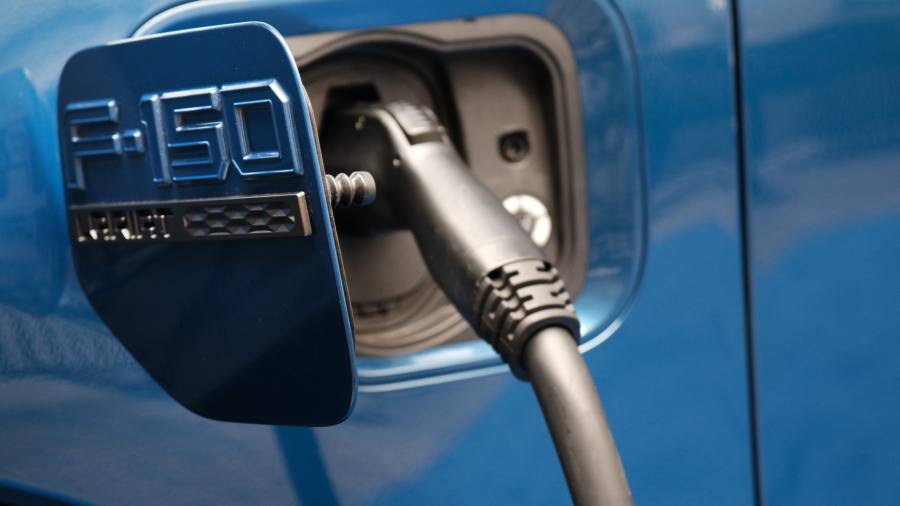Ford has announced plans to invest in a $4.5bn battery materials plant in Indonesia alongside a Chinese mining group, the latest gamble by the US carmaker that drawing China into its supply chain for electric vehicles will not backfire in Washington.
America’s second-largest carmaker has teamed up with China’s Huayou Cobalt and Brazilian miner Vale on the Pomalaa facility, which will help supply the nickel needed to produce 2mn electric vehicles a year.
The planned investment follows Ford’s announcement last month that it would license technology from China’s CATL, the world’s largest battery maker — a move that drew criticism from some US lawmakers.
Ford’s decision to deepen ties with Chinese companies comes as president Joe Biden offers $369bn of green tax incentives and subsidies in an attempt to give the US the lead in the global clean energy race.
Under the Inflation Reduction Act, consumers can benefit from tax credits up to $7,500 on electric vehicles that use batteries without components or raw materials sourced from a “foreign entity of concern” — including China.
The US Treasury is expected to clarify on Friday the eligibility requirements to secure consumer tax credits for EVs, which are granted if a certain amount of the raw materials or components in the batteries are sourced from the US or free trade partner countries.
The lower cost of production achieved through Chinese partners represents a gamble by Ford that it can sell EVs more cheaply than competitors by continuing to include China in its supply chain — even if it means forgoing some or all of the tax credits. Still, Ford and other carmakers have lobbied the US government for a generous interpretation of the IRA.
“This framework gives Ford direct control to source the nickel we need — in one of the industry’s lowest-cost ways,” said Lisa Drake, vice-president for EV industrialisation for Ford Model e.
Some US legislators have criticised Ford for its approach. Republican Senator Marco Rubio of Florida introduced a bill earlier this month aimed at Ford that would outlaw the tax credit for EVs built using batteries made in the future at a Michigan plant that plans to license Chinese technology.
Nickel sourced from Indonesia, which holds the largest nickel reserves in the world, has proved controversial for western carmakers. The majority of the country’s production is controlled by Chinese companies and generates large amounts of carbon emissions and mining waste compared with alternative suppliers such as Canada or Australia.
One key uncertainty over the IRA is whether the definition of “foreign entity of concern” will cover Chinese-controlled production in third countries such as Indonesia. Some mining industry executives expect mineral projects that have Chinese companies with less than 50 per cent of a joint venture to be acceptable.
Last July, Ford and its partners in the planned Pomalaa plant signed a memorandum in which the US carmaker would hold a 17 per cent stake, Huayou 53 per cent and Vale 30 per cent. Vale confirmed on Thursday that it will hold a 30 per cent stake but Ford and Huayou declined to confirm the size of their holdings.
The Indonesian government has been encouraging more investment by US and European businesses in its nickel industry.
One Indonesian official said the Pomalaa plant “shows Indonesia’s supply of commodities needed for EVs is important enough that US companies are willing to work with Chinese partners to secure things like raw material”.
George Fang, senior vice-president of Huayou Cobalt, called the Pomalaa project “one of the flagship projects under the Belt and Road Initiative”, referring to Beijing’s infrastructure investments across the developing world.
